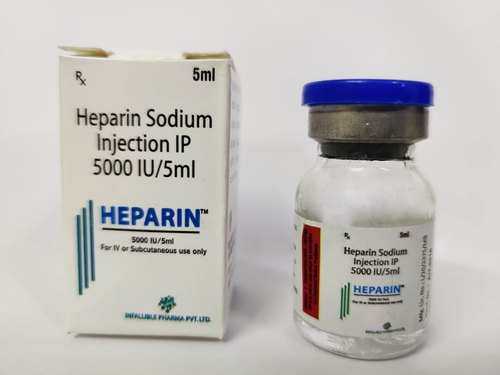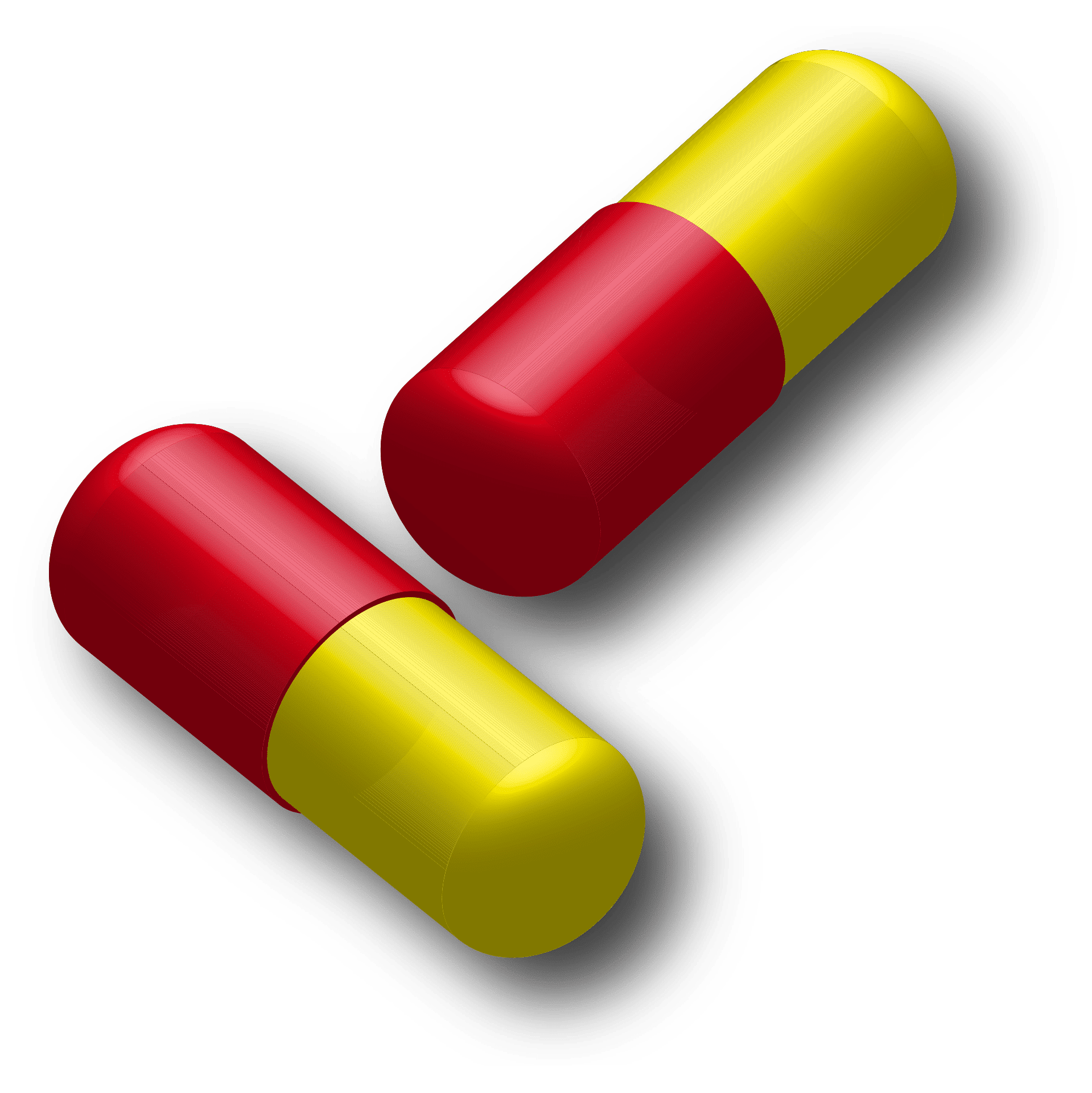Heparin Side Effects- Is It Life-threatening?
Heparin side effects are something you might have heard often and are pretty scared of. That’s understandable, seeing various downsides it has. In this article, you will learn everything about Heparin side effects, uses, and more.
What is heparin injection?
Heparin is an anticoagulant (blood thinner) that stops blood clots formation.
Heparin is employed to deal with and prohibit blood clots resulting in specific medical ailments or medical treatments. Furthermore, it is employed before surgery to lessen the danger of blood clots formation.
Warnings

Never practice heparin injection to clean out an intravenous (IV) catheter, as this may result in fatal bleeding.
You should further not utilize heparin infections if you retain uncontrolled bleeding or a severe scarcity of platelets in the blood. Do not utilize this medicine if you are diagnosed with “heparin-induced thrombocytopenia,” and shortage of platelets results in pentosan polysulfate or heparin.
Heparin boosts your chance of bleeding, which can be drastic or life-threatening. You will require regular examinations to estimate the blood-clotting time.
Call the health care experts or strive for emergency medical vigilance if you have unusual bruising or bleeding, severe stomach and back pain, unusual drowsiness, blood inside your stools or urine, nosebleed, coughing up blood, or bleeding that will not halt.
Heparin can result in you to have bleeding incidents while you are utilizing it and for many weeks after you end up using it.
Before taking this medication
You must not utilize this medication if you have an allergic reaction to heparin or other pork products or if you have:
- a prior history of shortage of platelets in the blood resulted in utilizing pentosan sulfate or heparin.
- severe scarcity of platelets in the blood; or
- rampant bleeding
You might not be prepared to utilize heparin if you cannot obtain regular blood-clotting examinations at adequate intervals during treatment.
To ensure heparin is reliable for you, tell the physician if you have ever had:
- an infection of the lining of the heart (also known as bacterial endocarditis);
- drastic or rampant high blood pressure;
- a bleeding disease or blood clotting disorder;
- intestinal or stomach disorder;
- liver disease;
- if you utilize a blood thinner (Jantoven, warfarin, or Coumadin) and you have regular “INR” or prothrombin time examinations; or
- If you have your monthly menstrual period.
It is not understood whether heparin will hurt an unborn infant. Tell the doctor if you are pregnant or planning to become pregnant. You might want to utilize a form of heparin that does not comprise a preservative.
It would help if you did not breastfeed while employing this medicine. Here are Heparin side effects you should be aware of.
Heparin side effects

Get emergency medical assistance if you retain symptoms of an allergic response to heparin such as nausea, sweating, vomiting, hives, trouble breathing, itching, swelling of the face, tongue, lips, or throat, or feeling as if you may pass out anytime.
Heparin might result in you bleeding highly easily, which can be severe or life-threatening. You might also detect bleeding on the interior of your body. Strive emergency medical vigilance if you have:
- skin warmness or discoloration;
- unusual tiredness;
- chest discomfort, uneven heartbeats;
- shortness of breath, anxiety, dizziness, sweating;
- excruciating pain or swelling in the stomach, lower back, or groin;
- unusual bleeding and bruising;
- Blue or dark-colored skin on your hands and feet;
- sickness, vomiting, loss of hunger;
- any bleeding that will not stop; or
- nosebleed, black or tarry stools, blood in your urine or stools, or coughing up vomit or blood that looks like coffee grounds
Bleeding might occur more in older grown-ups, particularly women above 60 years of age.
Quit using this medication and call the doctor at once if you have:
- skin color shifts where the medicine was insinuated;
- fever, chills, watery eyes, or runny nose;
- easy bruising, uncommon bleeding, red or purple spots beneath your skin; or
- Signs of a blood clot formation– sudden numbness and weakness, difficulties with vision or speech, bump or redness in an arm and leg.
Widespread heparin side effects might include:
- unusual bleeding or bruising;
- allergic reactions;
- uncontrolled bleeding; or
- abnormal liver function tests.
Heparin Side Effects- FAQS

1. What other drugs will influence heparin injection?
Ask the doctor before putting up with a nonsteroidal anti-inflammatory drug (NSAID) like aspirin, ibuprofen (Advil, Motrin), naproxen (Aleve), celecoxib, diclofenac, indomethacin, meloxicam, and others. Using an NSAID while taking heparin might easily result in a wound or bleeding.
Tell the doctor about all the other medicines, particularly:
- a blood thinner – warfarin, Coumadin, Jantoven;
- digitalis;
- tetracyclines;
- nicotine; or
- antihistamines.
This list is not comprehensive, and many additional drugs might bond with heparin. This encompasses prescription and over-the-counter medications, herbal products, and vitamins.
2. What should I avoid while using heparin injection?
Ask the doctor before putting up with a nonsteroidal anti-inflammatory drug (NSAID). Taking an NSAID with heparin might cause you to wound or bleed easily.
3. How to take Heparin (Injection)?
Use Heparin precisely as instructed on its label or as specified by the doctor. Do not use in massive or smaller quantities or for longer than suggested.
Follow all guidance on the prescription tag and examine all medication guides or instructions. Your doctor might sometimes alter your dose. Use the medication precisely as directed.
Heparin is injected beneath the skin or as an infusion inside your veins. The healthcare provider will provide your first dose and might teach you how to use the prescription by yourself properly.
Examine and carefully follow any Instructions given with the medicine. Ask the doctor or pharmacist if you do not comprehend all instructions.
Ready an injection just when you are prepared to give it. Do not utilize the medication if it has altered colors or grains. Call the pharmacist for a new dose of medicine.
Do not employ a heparin prefilled needle when providing this medicine to a kid. The prefilled needle comprises more than the dose given to a child.
Heparin boosts the risk of bleeding, which can be severe and life-threatening. You will require frequent tests to assess your blood-clotting time. The timing you give these tests is critical in assessing your condition and finding out whether it is safe for you to proceed using heparin.
If you require surgery, dental work, or a therapeutic procedure, tell the healthcare provider before the time that you are injecting heparin.
Store heparin at room temperature away from heat and moisture.
Use a syringe only once and then put them inside a puncture-proof bag. Follow state or regional laws about how to toss this container. Maintain it out of the reach of pets and children.
You might be shifted from injectable heparin to an oral dose (taken by mouth). Do not quit utilizing injectable heparin till the doctor instructs you to. You might require to utilize both the oral forms and injection for a short period.
4. What happens if I overdose on Heparin (Will Heparin Side Effects Increase)?
Overdose signs might comprise superficial bruising, blood in your urine or stools, nosebleeds, black or tarry stools, or another bleeding that will not halt.
If you believe you or somebody else might sized taken more doses of Heparin (Injection), call the doctor or any Poison Control center for help and assistance.

